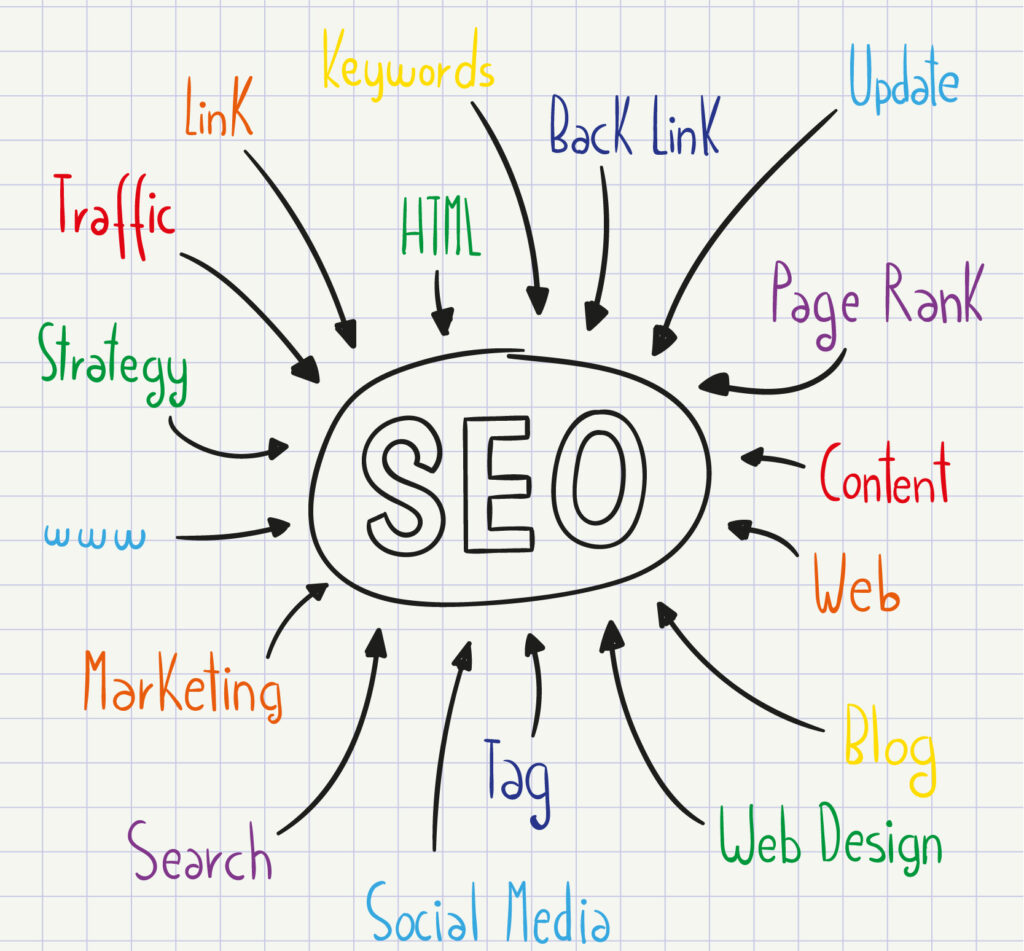
In today’s competitive online landscape, where businesses vie for visibility, Search Engine Optimization (SEO) has emerged as a cornerstone for digital success. Whether you’re running an e-commerce store, a blog, or a corporate website, SEO helps connect you with the right audience, drive organic traffic, and achieve your business goals.
But what exactly is SEO, and how does it work? This detailed guide explores the concept, functionality, importance in digital marketing, and best practices for beginners to help you understand its impact on your digital journey.
Search Engine Optimization (SEO) is the process of enhancing a website’s visibility on search engine results pages (SERPs) by optimizing its structure, content, and links. SEO focuses on improving your website’s rankings for specific keywords or phrases that your target audience is searching for.
In simpler terms, SEO ensures that when a potential customer looks for a product or service related to your business, your website appears at the top of the search results.

SEO is a critical component of digital marketing because it offers numerous benefits, such as:
SEO involves optimizing your website to align with search engine algorithms, making it easier for search engines like Google, Bing, or Yahoo to rank your pages. To achieve this, SEO incorporates several components and processes.
On-page SEO focuses on optimizing individual web pages to rank higher on search engines. Key aspects include:
Off-page SEO involves activities outside your website that improve its authority and trustworthiness. Examples include:
Technical SEO focuses on optimizing your website’s backend to make it easier for search engines to crawl and index your pages. Important factors include:
For businesses serving a specific geographical area, local SEO is essential. It involves:
In the digital era, marketing is no longer limited to traditional methods. SEO plays a vital role in digital marketing strategies for businesses of all sizes.

SEO helps your business reach people who are actively searching for products or services you offer. This targeted traffic increases your chances of converting visitors into customers.
Appearing at the top of search results enhances brand visibility and makes your business more recognizable.
SEO ensures your content reaches the right audience by optimizing it for relevant keywords and search intent.
SEO delivers sustainable results, making it a cost-effective way to achieve long-term growth compared to paid advertising.
Small businesses can compete with larger corporations by implementing effective SEO strategies.
If you’re new to SEO, getting started can feel overwhelming. Here are some practical tips to set you on the right path:
Identify relevant keywords using tools like Google Keyword Planner or Ubersuggest. Target a mix of short-tail and long-tail keywords to cover various search intents.
Content is king in SEO. Ensure your articles, blogs, and pages provide value, answer questions, and solve problems for your audience.
Write compelling meta titles and descriptions that include your target keywords. These elements improve click-through rates on SERPs.
Link to relevant pages on your website and acquire backlinks from reputable sources. Quality links enhance your authority and rankings.
Add descriptive alt text to your images to make them accessible and help search engines understand their content.
With most users browsing on mobile devices, ensure your site is mobile-friendly and responsive.
Use tools like Google Analytics and Search Console to track your site’s performance, identify issues, and refine your strategy.
SEO algorithms constantly evolve. Keep up with the latest trends and updates to maintain your rankings.
(+91) 8287792518
hello@digimarketers.co.in